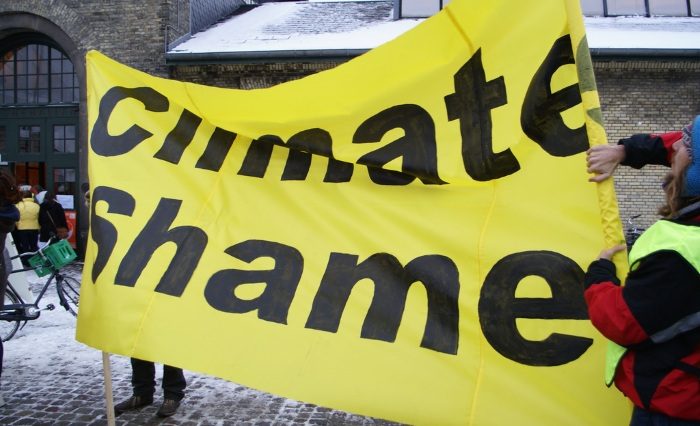
The 21st Conference of the Parties to the United Nations Framework Convention on Climate Change meets in Paris this winter and for many commentators this is the international community’s last-chance saloon to take concerted action on climate change. If we are to stand any chance of limiting global warming to plus-2 degrees centigrade over pre-industrial levels by the end of the century, then this is the final opportunity to do it.
For many in the scientific community the evidence shows that it is already too late to meet that target, but this does not mean we should do nothing – whatever the increase over the 2 degrees target, the more we can limit it the more chance we have of salvaging some form of human civilization for the next century.
The task at the Paris conference is to agree upon an international treaty to replace the Kyoto Protocol which expires in 2020. The ineffectiveness of Kyoto is shown by the fact that its current signatories only account for around 15% of global greenhouse gas emissions. China was always exempt, the United States never signed up (because China was exempt), and Russia, Canada and Japan refused to commit to a second Kyoto period of 2012 to 2020.
What is needed from Paris is an effective treaty that binds all nations into mitigation and adaptation commitments, but the record of failure by the international community so far, and the divisions going forward into the COP21 conference, give us some grounds for pessimism.
The key areas for negotiation are:
- The principle of differentiation in terms of who bears the burden of mitigation in the form of economy-wide cuts.
- The effectiveness of the Climate Fund in transferring resources from the developed to the developing world to support mitigation and adaptation.
- The question of compensation for climate change damage to developing states such as the small island nations.
- The Intended Nationally Determined Contributions, the commitments all parties are bringing to Paris in order to play their part in combating global warming.
The problem is that in order to achieve the outcome the world needs at Paris, there needs to be an international community working towards that outcome. Instead, we have nation-states defending their interests and forming into blocks with other states so that they can give those interests more weight at the conference table.
The fundamental division has been between the developed and developing world, but those two groups fragment into different blocks with different agendas. The developed world, for example, has a split between the European Union with a commitment to severe cuts in greenhouse emissions, and the Umbrella Group, a loose alliance of countries such as Canada, Russia and Japan who are not so keen on emissions cuts and want a focus on other mitigation approaches such as the creation of carbon sinks.
More interesting, perhaps, are the divisions in the developing world. Here we find the powerful BASIC group — Brazil, South Africa, India and China – newly industrialized countries with an interest in ensuring that the obligation to take economy-wide mitigation measures falls upon developed rather than developing nations, and the larger Like Minded Developing Countries Group which takes a broadly similar line.
But on the other hand there is the Alliance of Small Island States (37 members), and the Least Developed Nations Group (48 members) who are more in line with the European Union position, that there needs to be severe cuts in greenhouse gas emissions, and the biggest emitters such as China and India need to play a full role in achieving this.
There are many other blocks – the African Group, CACAM (Central Asia, Caucasus, Albania and Moldova), IALAC (Independent Alliance of Latin America and the Caribbean), for example (for a full list see here) – and things are further complicated by the fact that certain states are members of more than one interest block. For example, many sub-Saharan African states are members of the LDNG and the African Group, and conflicting interests arise between those groups.
Between now and Paris I will blog again and explain the key areas for negotiation but for now we should be aware that global warming’s last-chance saloon will soon be upon us, and far from there being an international community acting together, we have various gangs ready to shoot each other in the back while the piano-player plays on.
Further Reading on E-International Relations
- With Great Power Comes Great Climate Responsibility
- Small Island Climate Diplomacy in the Maldives and Beyond
- Intergenerational Justice and the Paris Agreement
- Ten Years After the Paris Agreement: The Tragedy of the Overshoot Generation
- Opinion – What the US Exit from the Paris Accords Means for Women
- Reducing Greenhouse Gases Is a Security Issue